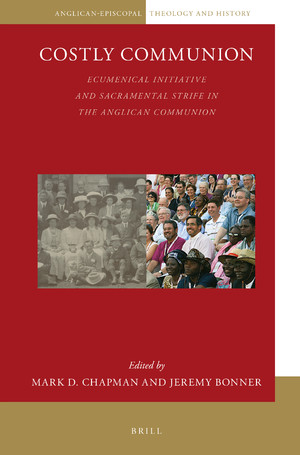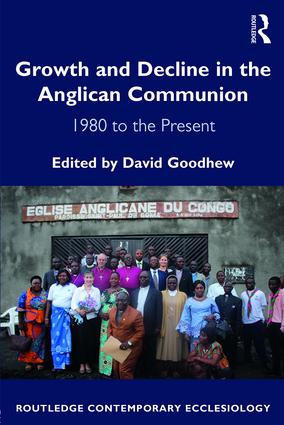Sermon Preached by Paul Johnston
in Trinity Cathedral, Pittsburgh, January 27, 2008.
Once upon a time, there was a symphony orchestra. You could hardly call it that at first. It was smaller—maybe a chamber orchestra. Really, it was only a small, rag-tag bunch. But there came to them an inspired and inspiring conductor. They called him “maestro.”
With the maestro on the podium, the players played better than they thought possible. They gave the maestro their 110%. Not only did they grow as individual musicians. They came together as a remarkable ensemble, as if of one mind.
They’d come home from rehearsal and tell their families, “This is a concert you won’t want to miss.” They’d invite their friends. Their friends then told their friends, and soon the players had friends’ friends inviting their friends.
Word spread. The audience and critics, hearing the symphony orchestra under the maestro, would hear the music and find reality illuminated and clarified, and yet in the music there would also be promises for the future. There would be answers—even to questions they hadn’t asked yet.
The symphony’s fame grew. The roster grew. They built their own concert hall, so now they no longer had to rent the high school gym. But in no time, they’d outgrown the first hall and had to build a second. Then they built their third—and by all accounts the most beautiful—concert hall, a jewel on prime real estate downtown.
But slowly, you could sense other changes. Players came and went. Some were genuine superstars on their instruments. During coffee breaks at rehearsals, or long after getting off work, they had conversations about fascinating and often significant issues.
A violinist would ask, “Which edition of this music is more reliable?” A violist might reply, “Does it really matter? Can’t we just look to the conductor?” Another would say, “Well, maybe we need to revise our idea of who the conductor is.” One ventured, “Calling him maestro seems oppressive.”
There were endless discussions about the second movement of Beethoven’s Seventh Symphony. The tempo indicated in the score is that quarter notes should be at 76 beats per minute. One party of musicians believed they should respect the composer’s intentions, as apparently he wrote them. But some believed that to be too fast. “It’s unmusical if you do exactly what the score says,” they argued. Some of their colleagues speculated that Beethoven’s metronome was malfunctioning at the time he wrote this work.
The symphony orchestra built a conservatory, where the players kept busy teaching and arguing for their interpretations. This left them less time to practice, of course. Rehearsals became more perfunctory.
If you had half an ear, you could detect problems. The players weren’t together on entrances. They didn’t cut off together on downbeats. The third trumpet was always a little flat, compared with the rest of the orchestra, but no one cared enough to correct him except the conductor, who the players no longer heard.
They got the notes, mostly. But something was missing. So, the audience slowly dwindled. A couple of empty seats here, one or two over there. Then a whole row. It was so imperceptible at first, no one saw what was happening until at last they were in serious trouble.
The orchestra tried different marketing strategies. There was Dietrich Buxtehude Bobble-head Night. It was fun, but didn’t change attendance patterns.
They remodeled the concert hall. No improvement in attendance.
They brought in a consultant. He said, “You can remodel all you want. But your content is irrelevant.”
So they added a drum set and electric bass to their renditions of Mozart. They even put out a record called “Hooked on Mozart.” However, when disco went out of style a couple of years later, they found themselves still in trouble.
It got so bad that, while they agreed to agree on essentials and disagree on inessentials, they couldn’t agree on what the essentials were anymore!
There were partisan fans. When Apollos the horn player would have a solo, his loyal followers would cheer, but the followers of Cephas the bassoonist would boo and hiss. When the oboist Bob had the most prominent, most risky, solo of his career, his fans whistled and thumped their chests, but the flutist Kathryn’s fans tried to kick him out of the orchestra.
There was even disagreement over who the concert hall belonged to.
Occasionally you’d hear a lone voice: “It’ll turn out all right if you follow the conductor.” But someone always replied, “Yeah, but what does that mean?” Or, “Easy for you to say.” Or, “I don’t look for a conductor anymore. I’ve grown past that. But a conductor is a meaningful metaphor for the beat within me.”
To anybody who loved music, however, the orchestra was an orchestra in name only. It didn’t perform with one mind.
___________
Listen to what St. Paul wrote to the Corinthians. This is the first verse of this morning’s Epistle (in my dynamic paraphrase from the Greek original): “I passionately urge you, brothers and sisters, by the name of our Lord Jesus Christ, that you all be on the same page, not torn apart in schism, but mended in your ways, the cracks repaired, being of one mind and one aim.”
Paul had a lot to say to the Corinthians about unity. The Corinthian church was in fact quite a mess. And in a broader context, Jesus had a lot to say about unity, too. From the New Testament, here’s one thing unity isn’t, and one thing it is:
Going by what Jesus and Paul say, unity isn’t simply getting along. It’s not tolerance. The notion of tolerance is indeed quite foreign to the New Testament. If you were to wear one of those “Teach Tolerance” buttons to an interview with St. Paul, he’d probably shake his head and say, “Tolerance? Your standard is too low!” Can you imagine a Church where everyone merely tolerated each other? Can you imagine a world where the best we could do would be to tolerate each other?
Instead, as Paul builds his argument in his first Corinthian letter, by Chapter 13 he proposes that the greatest spiritual gift is love. And Paul consistently defines love in Jesus’ manner as being every bit as concerned for another’s good and salvation as you are for your own. This isn’t easy, and it takes humility and discernment. But it is the ideal of love.
In other words, unity is not neutral. This unified Body—which Christ calls his Church—he once said will triumph over “the gates of hell.” That’s not neutral language. If you read this morning’s Epistle and keep going a few verses, Paul speaks of the Kingdom of Heaven and those who relate to it either wisely or foolishly. That’s not neutral. So, unity isn’t about taking no stand, making no choices, and sometimes it even rules out agreeing to disagree. Unity is not just tolerating each other.
Unity is something radical. Rather than playing it safe, Christian unity is dangerous. Our Epistle speaks of the power of the Cross as an instrument of unity—surpassing Baptism, in fact. Unity as Paul urges it in I Corinthians comes from a Cross-centered love which dares to discipline and has the power to transform lives.
How do we achieve this radical New Testament unity? Our Gospel has the answer: Jesus invites us, “Come, follow me.” If we follow him all the way to the Cross, we’ll be of one mind and purpose.
Does this seem naïve? Isn’t much of the Church’s debate over exactly what following Jesus looks like?
Yes. And yet, Jesus is the one whose overarching invitation to the kingdom was always personal, “Come, follow me”—who said the way to Father is “by me.” Since it’s his idea, he can make it work.
To achieve the radical, real unity Scripture calls for, not fake unity, which often is disunity masquerading under backslapping jollity, we must “come follow” Jesus more and more, and then trust that what needs to fall into place will fall into place.
___________
It was called a symphony orchestra. But it didn’t sound like one anymore.
One day, a new concertmaster came to the orchestra. He was kind of odd. He kept his eye on the conductor. The rest of the orchestra didn’t notice that, since they had other concerns. The principal oboe once asked the concertmaster, “Do you think it’s fair that there we have 32 violins and a minority of three oboes?” The principal flute asked, “Do you think we should take this tempo marking literally?” The concertmaster kept playing, kept looking past them, his focus on a point more distant.
One day, the principal clarinet heard a voice: “Follow me.” She looked up and saw the conductor. “Did you hear that?” she asked the assistant principal clarinet.
“Hear what?”
“I heard the conductor say, ‘Follow me.’ ”
“What!” the assistant replied, “there’s a conductor?” The piccolo player whipped around, “Does he still exist?”
The message spread through the orchestra. Others heard the voice, looked up, and started to follow. The more they did their best to follow, the more together they were. If they kept their eyes on the music and on the baton, good things happened.
Not that they didn’t have questions. Not that they didn’t have their own ideas. But they could check them with the maestro. The tuba player, whose name was Anselm, said, “Now, I do not seek to understand everything before following the conductor, but I follow the conductor in order to understand.”
The orchestra was enthusiastic about what was happening between them and the maestro. They told their families. Then they were inviting their friends. Their friends then told their friends, and soon the players had friends’ friends inviting their friends.
The audience grew. You no longer had partisan fans. When you’d hear an oboe or flute solo, you heard it as part of a coherent story. Maybe it was Romeo & Juliet, or perhaps Scheherazade. Even with the 1812 Overture, it wasn’t just a loud piece with lots of cannons. You sensed a cosmic struggle of good and evil.
The listeners felt deeply, saw visions. You’d hear the churning C-minor opening in the Symphony No. 1 of Brahms and shudder, “Woe is me!” Then that trombone chorale would enter in the finale, parting the clouds, and you knew you weren’t alone—you’d gone from darkness into light, from death into life.
All eyes were on the conductor. Everyone in the orchestra and everyone in the audience watched the master. And if your eye should wander to a player, you’d be amazed at how closely the player’s intentions reflected those of the conductor.
In the end, there were now standing ovations. There was no rush for the exits. No one wanted to leave the building. There were shouts of “Bravo! Bravo!” And of “Alleluia!”
And Jesus said to them, “Follow me…” And they left everything—liberal and conservative labels, certainty over their interpretation of canon law, uncertainty over whether the Cathedral was the property of the national church or the diocese, the way things used to be—everything, and followed him.
Published with the author's permission









